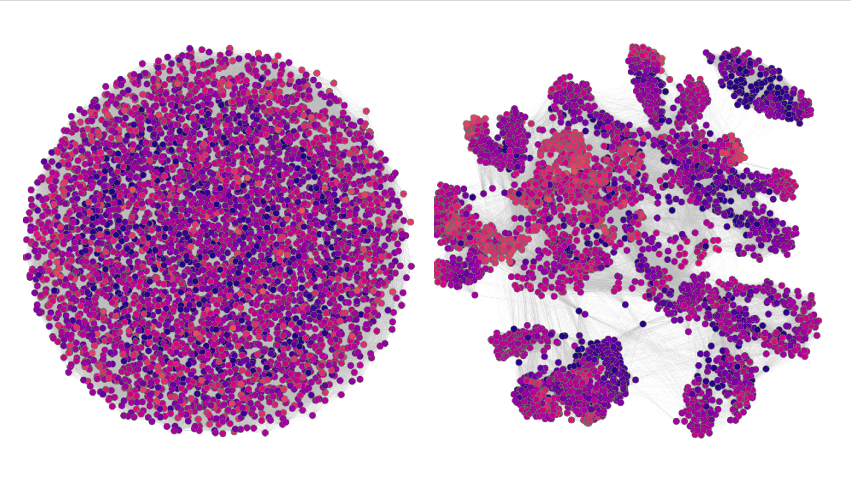Untangling Force-Directed Layouts Using Persistent Homology
Bhavana Doppalapudi, Bei Wang, Paul Rosen
View presentation:2022-10-17T21:27:00ZGMT-0600Change your timezone on the schedule page
2022-10-17T21:27:00Z

The live footage of the talk, including the Q&A, can be viewed on the session page, TopoInVis: Session 2, Early Career Lightning Talks + Best Paper Awards .
Keywords
Force-directed layout, persistent homology, graph clustering, graph cycles
Abstract
Force-directed layouts belong to a popular class of methods used to position nodes in a node-link diagram. However, they typically lack direct consideration of global structures, which can result in visual clutter and the overlap of unrelated structures. In this paper, we use the principles of persistent homology to untangle force-directed layouts thus mitigating these issues. First, we devise a new method to use 0-dimensional persistent homology to efficiently generate an initial graph layout. The approach results in faster convergence and better quality graph layouts. Second, we provide a new definition and an efficient algorithm for 1-dimensional persistent homology features (i.e., tunnels/cycles) on graphs. We provide users the ability to interact with the 1-dimensional features by highlighting them and adding cycle-emphasizing forces to the layout. Finally, we evaluate our approach with 32 synthetic and real-world graphs by computing various metrics, e.g., co-ranking, edge crossing, etc., to demonstrate the efficacy of our proposed method.